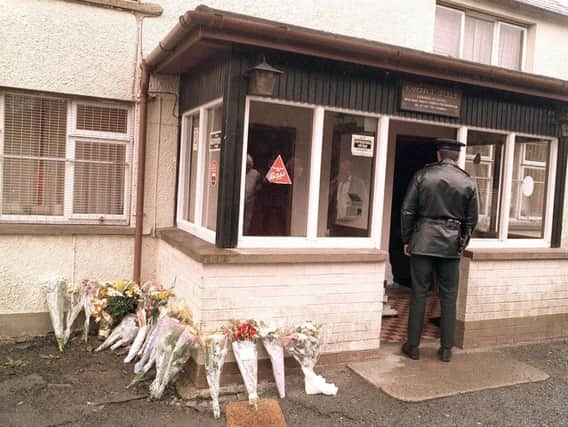Judgement reserved in case taken by officers over Loughinisland report


Counsel for the watchdog argued legislation allowed him to disclose concerns about police “corporate processes” identified during his investigation into the Loughinisland atrocity 23 years ago.
Tony McGleenan QC insisted: “There was no illegality at all to be found in the presentation of this report.”
Advertisement
Hide AdAdvertisement
Hide AdTwo retired senior policemen are seeking to have the ombudsman’s findings quashed.
Following two days of submissions judgment was reserved by Mr Justice McCloskey in the challenge mounted by Raymond White and Thomas Hawthorne.
In June last year the Police Ombudsman, Dr Michael Maguire, said collusion between some officers and the loyalists was a significant feature in the murders.
He found no evidence police had prior knowledge, but identified “catastrophic failings” in the investigation.
Advertisement
Hide AdAdvertisement
Hide AdMr White, a representative of the Northern Ireland Retired Police Officers’ Association, and Mr Hawthorne, a retired chief superintendent, are challenging the legality of the document.
They claim the ombudsman went beyond his legal powers in creating an “ad hoc” investigative system, and denied rights and protections to those under scrutiny.
The Loughinisland report should only have been released if it recommended prosecutions or disciplinary action, according to their case.
David McMillen QC, representing the two former officers, contended: “The ombudsman did not understand his function or the limitations of his power, and made up the procedure as he went on, with catastrophic results for all concerned.”
Advertisement
Hide AdAdvertisement
Hide AdThe watchdog’s probe found no evidence of criminality or scope for disciplining any officers, the court heard.
Mr McGleenan countered that there was still a need for his client to publish the findings.
Nothing within the relevant legislation prevented the ombudsman from disclosing those views, the barrister submitted.
He also rejected claims that the investigative process treated Mr Hawthorne unfairly.
Advertisement
Hide AdAdvertisement
Hide AdThe former police commander was contacted before publication and given the opportunity to respond with potential modifications to the draft report, the court was told.
Emphasising that no fault was attributed to Mr Hawthorne, counsel said: “It’s a basic tenet of public law fairness that an individual has a right to know and respond.
“We have here that process being set in motion.”